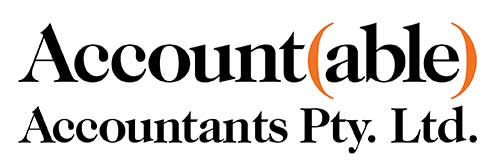Is there any tax deduction benefits of claiming a private car in a business?

Business clients often question if there are tax benefits of claiming a private car in their business (so maybe a spouse’s or adult child’s car, etc). For any car, the ATO requires that any private use of the car is adjusted for tax deduction purposes, so that the business is not claiming 100% tax deduction for car running costs. So the business claim is adjusted, based on the private use of the car costs (so 100% claim may reduce to 30%, or 15% or 5%, depending on car usage).
Which when a business is in a company or trust, the two options to calculate private use through the ATO’s Fringe Benefit system, is:
- Complete a 12 week car logbook, to determine if the car has any business Say there is minimal amount of say 5% work use, which means it’s 95% private use. So you claim 100% of car costs (fuel, repairs, insurance, rego, depreciation, finance costs, etc) but then reduce this for 95% of private use, so only claim a net 5% tax deduction – so this is only a small benefit.
- The second option for the car claim reduction for private use, can also be done based on 20% of the car purchase cost, of when you purchased the car. So if it’s a $10k car, this would be $2k car claim reduction, buts if it’s a $60k car, it would be a $12k car claim reduction. Which after 4 tax years, the ATO allows the car purchase price to be reduced to 2/3 for this calculation.
So this second method, there is a tax deduction advantage when the car cost is at the lower end – as the yearly car cost tax deductions easily exceeds the private use adjustment that needs to reduce your car claims, creating a tax benefit (see example 1 below). Whereas if it’s a more expensive car it usually evens out, as the 20% of car cost adjustment, usually exceeds the running cost deductions on that vehicle, meaning this excess becomes additional profit to the business that you pay tax on (see example 2 below).
These adjustments occur every year you have the car in the business (and note that the driver of the car cannot claim the same car in their personal tax return if they used it for their work (ie if your child was doing a trade apprenticeship, they could not claim the car, as its owned and claimed by your business).
Example 1 – You have a child who is buying a $10,000 car. Let’s say the annual running costs are fuel $2k, rego and insur $2.5k, services and tyres $1k, depreciation $2k, other $500 – so total about $8k. So it would be a $8k tax deduction, with a $2k car claim reduction for private use (being 20% on a $10k car), so the net tax deduction advantage reduces from $8k less the $2k reduction, so $6k tax benefit.
Which this would also be effective if it was a $20k car – which depreciation claim would be a bit more (so total tax deduction maybe $9-10k), and the car claim reduction would be $4k (being 20% on $20k car cost).
Example 2 – When it’s a more expensive car (ie for your spouse), that is say $60k – then the car claim reduction is $12k (being 20% of $60k purchase), so it cancels out the tax deduction benefit of claim the running costs of that car.
If it was a $100k car, it becomes a significant disadvantage for tax, as the 20% is based on the full purchase cost, but for tax deduction purposes, the maximum depreciation limit on a car is only $64,741.
There may be GST claim benefits also, but I haven’t gone into this detail.
Written By: Pat Hoey
